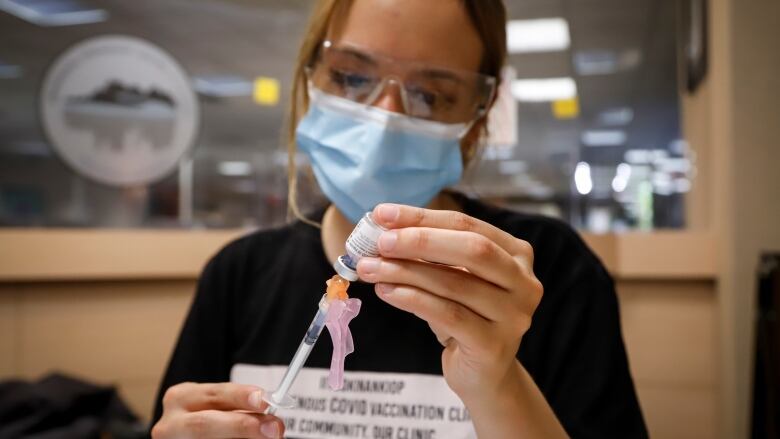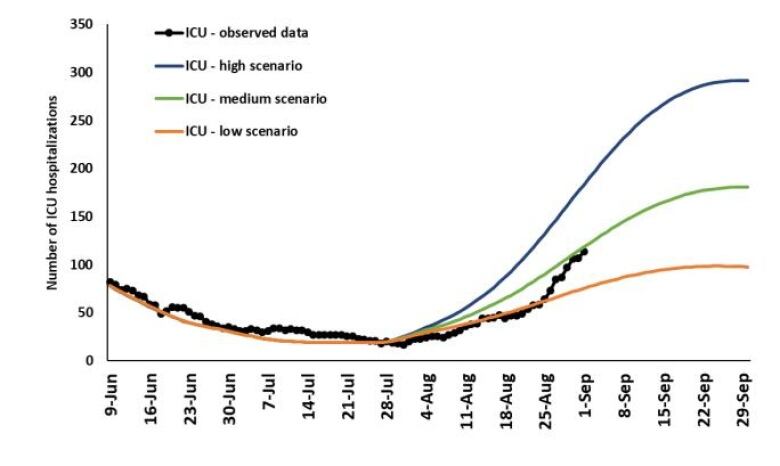Alberta's updated COVID-19 modelling projects close to 2,000 daily cases in 4th wave 'high scenario'
Recent modelling from B.C. group projects 6,000 new cases per day by October

Alberta could see close to 2,000 new cases daily of COVID-19 under a "high scenario" by mid-September under updated modelling released by the province.
Under the same scenario and timeframe, Alberta could also see close to 290 people in ICU, while hospitalizations could peak at 700 over the next several weeks.
A "medium scenario" would see around 180 people in ICU under the same timeframe.
Such projections prompted the province to announce new health measures on Friday, said Dr. Deena Hinshaw, the province's chief medical officer of health.

"The impacts are much higher than in previous models with later and higher potential peaks," Hinshaw said. "It should be noted that there are no guarantees of when our peak will arrive, and this modelling assumes a constant mixing pattern amongst the population."
The new modelling comes after weeks of negative commentary from health-care workers and critics,who called for the release of the public health data used to justify the province's late July decision toliftrestrictions.
In late August, a spokesperson for Alberta Health said there was no timeline for the data to be released, adding it would arrive "in the near future."

The province said some regions will experience different case and hospitalization statistics per capita, especially in those regions with lower vaccination rates.
"We know that behaviour and contact patterns will likely change in September as fall activities begin," Hinshaw said."So it is likely that the peak hospitalization and ICU numbers will exceed these current predictions if we do not implement public health measures now."
Projections from non-government group significantly higher
A report from the B.C. COVID-19 Modelling Group released Wednesdayprojected thefourth wave could result in more than 6,000 new cases per day by October.
The report also projected that the province could see more than 1,500 hospitalizations and close to 500 people in ICUs.
The modelling was released prior to the announcement of Alberta's new health restrictions, and doesn't factor in any potential upticks in vaccination rates that may result from the province's move to pay $100 to people who get a first or second jab.

The province also released additional informationthat it said summarized the evidence that informed past moves, adding it was constantly weighing the tradeoff between "an extraordinary response to COVID-19 [and] integrating our response with other respiratory viruses and reallocating some resources to other health priorities."
Based on available information released in June, the province said its data suggested the "most likely scenario" at the time was that ICU hospitalizations would peak around 70 in early to mid-September, while total hospitalizations were expected around 220.
The province said though ICU predictions aligned closely with its expected numbers in early August, non-ICU hospitalizations were trending up.
As of Thursday, there were487people being treated in hospital in Alberta, 114of whom were in ICU.












_(720p).jpg)


 OFFICIAL HD MUSIC VIDEO.jpg)
.jpg)



























































































